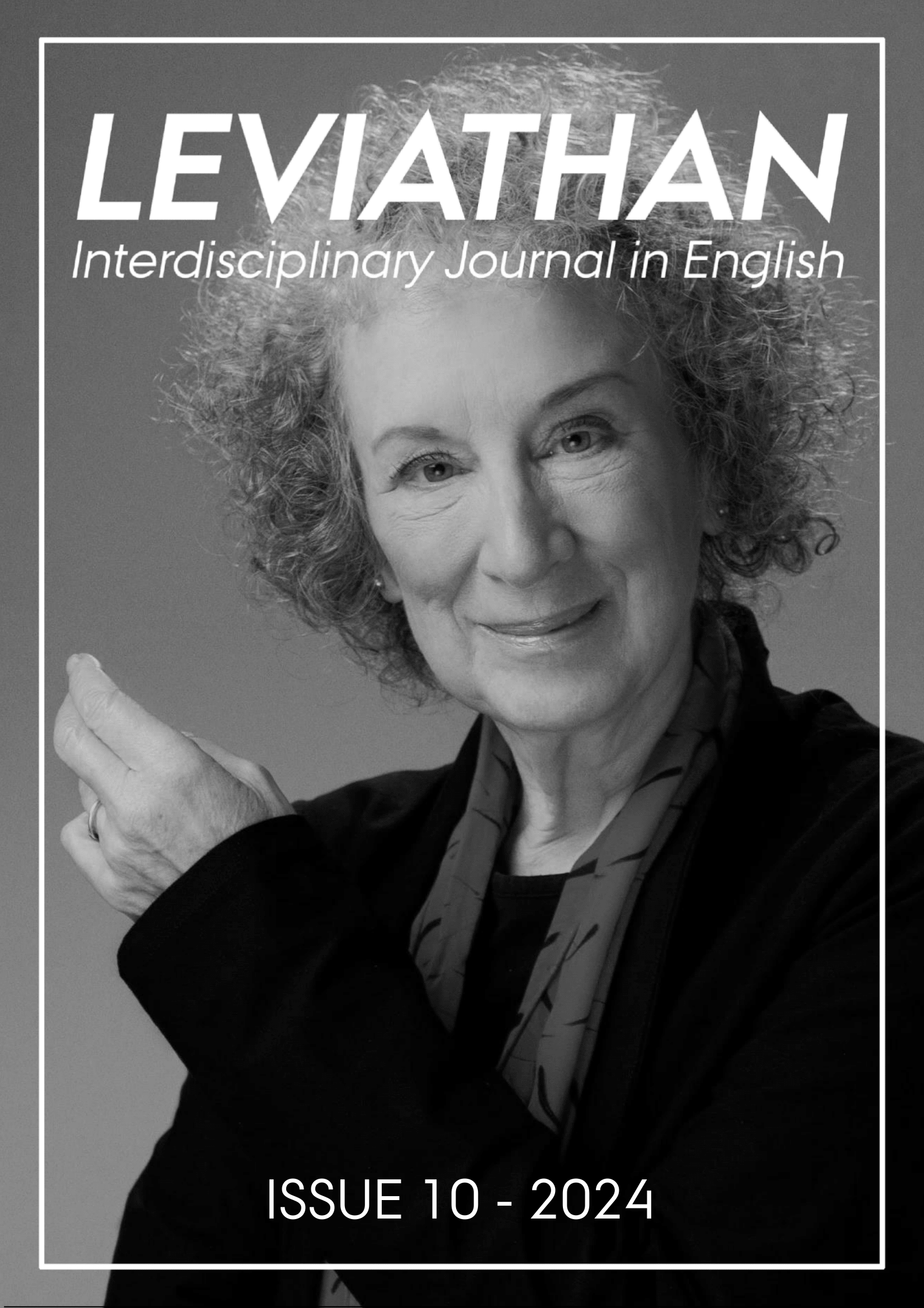“The Sorriest Prime Minister”
Apologies of Justin Trudeau
DOI:
https://doi.org/10.7146/lev102024144282Keywords:
politeness theory, apology theory, speech acts, political apologies, sociolinguisticsAbstract
In contemporary political discourse, political apologies have emerged as a critical linguistic tool allowing politicians to sway and manipulate public perception. Especially the act of historical apology has been on the rise. This article examines the apology strategies of Canada’s Prime Minister, Justin Trudeau, and how Trudeau modifies his apologies when apologizing for personal offenses versus historical transgressions. Drawing on politeness theory, the article suggests that Trudeau apologizes differently when apologizing for personal offenses than for historical transgressions. The article asserts that Trudeau’s personal apologies are marked by non-apology and face-saving strategies, whereas his historical apologies are more performative. This contrast underlines a strategic approach to apologizing, suggesting that Trudeau strategically leverages historical apologies to bolster his image as a progressive politician and minority ally. The article claims that, through these linguistic tactics, historical apologies, particularly historical apologies, serve as powerful means for shaping and perpetuating a desired political identity.
References
Augoustinos, Martha, Brianne Hastie, and Monique Wright. 2011. “Apologizing for Historical Injustice: Emotion, Truth and Identity in Political Discourse.” Discourse & Society 22 (5): 507–31. http://www.jstor.org/stable/42889774.
BBC News. 2019. “Trudeau Apologises for Inuit Tuberculosis Policy in 1950s.” https://www.bbc.com/news/world-us-canada-47488707. Accessed May 14, 2023.
Blum-kulka, Shoshana, and Elite Olshtain. 1984. “Requests and Apologies: A Cross-Cultural Study of Speech Act Realization Patterns (CCSARP).” Applied Linguistics 5 (3): 196–213. https://doi.org/10.1093/applin/5.3.196.
Brown, Penelope, and Stephen C. Levinson. 2004. Politeness: Some Universals in Language Usage. Cambridge University Press.
Catalano, Theresa, and Linda R. Waugh. 2020. Critical Discourse Analysis, Critical Discourse Studies and Beyond. Springer International Publishing AG. https://doi.org/10.1007/978-3-030-49379-0.
CBC News. 2019. “What We Know about Justin Trudeau’s Blackface Photos – and What Happens Next.” https://www.cbc.ca/news/politics/canada-votes-2019-trudeau-blackface-brownface-cbc-explains-1.5290664. Accessed May 11, 2023.
cpac. 2021. “PM Trudeau Unveils COVID-19 Vaccine Mandate, Apologizes for Tofino Vacation – October 6, 2021.” YouTube. Uploaded by cpac. October 6, 2021. Video, 47:31:00, https://www.youtube.com/watch?v=wWwO-PmMWws. Accessed May 12, 2023.
CTV News. 2019. “Trudeau Apologizes for Wearing Brownface Makeup in 2001 Yearbook Photo.” YouTube. Uploaded by CTV News. September 19, 2019. Video, 13:56:00, https://youtu.be/Ccb6VnKI35o. Accessed May 12, 2023.
Dobrowolsky, Alexandra, and Bethany Leal-Iyoupe. 2022. “Shame Face? The Justin Trudeau Blackface Scandal, Multicultural Performativity, Privilege, and Power.” Review of Constitutional Studies 26 (2): 73–100.
Global News. 2017. “Full Speech: Justin Trudeau Offers Formal Apology to LGBTQ Community for Government Discrimination.” YouTube. Uploaded by Global News. November 28, 2017. Video, 20:54:00, https://youtu.be/xi23IL3b6cs. Accessed May 12, 2023.
Global News. 2019. “Justin Trudeau Apologizes on Behalf of Canada for Mistreatment of Inuit during TB Epidemics.” YouTube. Uploaded by Global News. March 8, 2019. Video, 22:22:00, https://youtu.be/we4u2LlNfEE. Accessed May 12, 2023.
Global News 2021. “Trudeau Says Tofino Vacation Was a ‘Mistake’” https://globalnews.ca/news/8247262/trudeau-tofino-truth-reconciliation-apology-mistake/. Accessed May 12, 2023.
Goffman, Erving. 1967. Interaction Ritual: Essays on Face-to-Face Behavior (1st ed.). New York: Routledge. https://doi.org/10.4324/9780203788387.
Grundy, P. 2019. “Chapter 7: Being Polite.” Doing Pragmatics (4th ed.). Routledge: 239–265. https://doi.org/10.4324/9780429300301.
Harris, Sandra, Karen Grainger, and Louise Mullany. 2006. “The Pragmatics of Political Apologies.” Discourse & Society 17 (6): 715–37. http://www.jstor.org/stable/42889088.
Kampf, Zohar. 2009. “Public (Non-) Apologies: The Discourse of Minimizing Responsibility.” Journal of Pragmatics 41 (11): 2257–2270. https://doi.org/10.1016/j.pragma.2008.11.007.
Lakoff, RT. 2001. “Nine Ways of Looking at Apologies: The Necessity for Interdisciplinary Theory and Method in Discourse Analysis.” The Handbook of Discourse Analysis, 293–308. Oxford: Blackwell. https://doi.org/10.1002/9781118584194.ch13.
Martin, Don. 2021. “Don Martin: Sorry Is Never the Hardest Word for Justin Trudeau.” CTV News. May 27, 2021. https://www.ctvnews.ca/politics/don-martin-sorry-is-never-the-hardest-word-for-justin-trudeau-1.5445755?cache=pawumraq%3FclipId%3D89531. Accessed May 27, 2023.
Murphy, James. 2014. “Apologies in the Discourse of Politicians: A Pragmatic Approach.” The University of Manchester (United Kingdom). ProQuest Dissertations Publishing. 10034139. https://pure.manchester.ac.uk/ws/portalfiles/portal/54557215/.
Murphy, James. 2015. “Revisiting the Apology as a Speech Act: The Case of Parliamentary Apologies.” Journal of Language and Politics 14 (2): 175–204. https://doi.org/10.1075/jlp.14.2.01mur.
Tracy, Karen. 2017. “Facework and (Im)politeness in Political Exchanges.” In The Palgrave Handbook of Linguistic (Im)politeness, 739–758. London: Palgrave Macmillan UK, 2017. https://doi.org/10.1057/978-1-137-37508-7_28.
Downloads
Published
How to Cite
Issue
Section
License

This work is licensed under a Creative Commons Attribution-NonCommercial-NoDerivatives 4.0 International License.
Attribution-NonCommercial-NoDerivatives 4.0 International (CC BY-NC-ND 4.0)
You are free to share (copy and redistribute the material in any medium or format).
However:
You may not use the material for commercial purposes.
You must give appropriate credit, provide a link to the license, and indicate if changes were made. You may do so in any reasonable manner, but not in any way that suggests the licensor endorses you or your use.
If you remix, transform, or build upon the material, you may not distribute the modified material.
You may not apply legal terms or technological measures that legally restrict others from doing anything the license permits.





